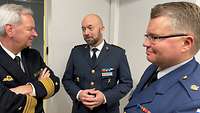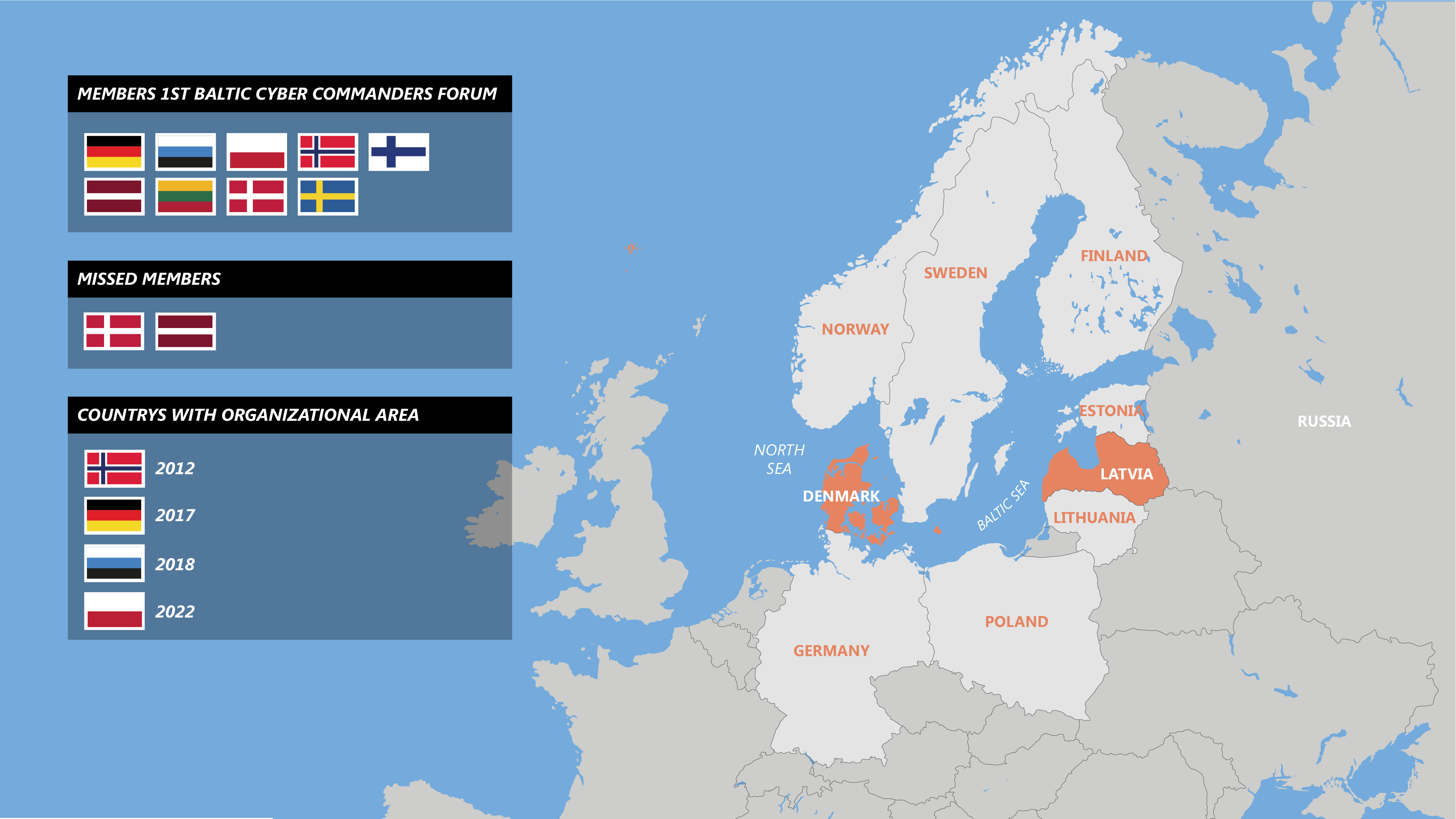Establishment of the Baltic Cyber Commanders Forum
Multinationality- Date:
- Place:
- Europe
- Reading time:
- 3 MIN


The war in Ukraine, the aggressive attitude of the Russian Federation, and the emergence of a new era in German security policy – there are sufficient reasons for the cyber commanders of the Baltic Sea states to close ranks and launch a new form of cooperation: the Baltic Cyber Commanders Forum.

Participation in the Baltic Cyber Commanders Forum is not limited to current NATONorth Atlantic Treaty Organization member states: Sweden and Finland participated as well.
Bundeswehr/Markus MüllerThe term ‘cyber commanders’ refers to personnel in charge of the fourth military domain – cyber and information space – within their armed forces. In 2016, NATONorth Atlantic Treaty Organization added cyber and information space to the traditional domains of land, see, and air/space. In the Bundeswehr, the Cyber and Information Domain Service was established as an independent organisational element in 2017 under the command of Vice Admiral Dr Thomas Daum.
The Baltic Sea and its littoral states are located in a region that is of key importance for European security. Germany, as one of these states, has demonstrated its military commitment in many different ways, including the Baltic Maritime Component Command, the command and control of Battle Group Lithuania as part of enhanced Forward Presence, and numerous other cooperation projects. Now, a new forum dedicated to the cyber and information domain has been established on Germany’s initiative: the Baltic Cyber Commanders Forum. Representatives of all Baltic Sea states – with the exception of Russia – were invited to the first meeting in October 2022. Seven of the nine invitees were able to come to Tallinn and attend the meeting.
It is no coincidence that Germany’s Cyber and Information Domain Service is a driving force behind this new form of cooperation. Among the participants, Germany was one of the first nations to create a separate organisational element reflecting the independence of the cyber and information domain. With a personnel strength of about 15,000 members, the German Cyber and Information Domain Service today still constitutes the largest specialized organisational element of its kind among the Baltic Sea states. Wishing to support other nations and to benefit from greater cooperation, Germany consequently took the initiative – supported by the Estonian armed forces, who closely cooperated with the forum’s hosts on the ground.

Representatives of all Baltic Sea states – with the exception of Russia – were invited to the Baltic Cyber Commanders Forum
Bundeswehr/Andreas WiemerWhat is unique about military reality in the virtual and digital world? National borders become blurred; conflicts and threats cannot be pinpointed precisely and are often highly complex due to the large number of actors that elude easy classification. Simple national solutions often remain wishful thinking. In his capacity as host, Dr Daum put two projects on the agenda of the first forum: NATONorth Atlantic Treaty Organization’s Federated Mission Networking (FMNFederated Mission Networking), and the European Union’s Cyber and Information Domain Coordination Centre (CIDCCCyber and Information Domain Coordination Centre).
FMNFederated Mission Networking provides NATONorth Atlantic Treaty Organization and friendly states with a method of establishing rapid technical interoperability. This federal system allows individual nations to retain their own technology, procedures and training and maintain their sovereignty while closely coordinating their operations in a targeted and structured manner. This way, NATONorth Atlantic Treaty Organization can respond to crises more quickly and can also integrate non-NATONorth Atlantic Treaty Organization nations on a case-by-case basis. The aim of FMNFederated Mission Networking is to develop what is known as ‘day zero interoperability’. With its highly esteemed German Mission Network, Germany is already in a position to fulfil the high standards and continually developing requirements of FMNFederated Mission Networking and to support the integration of other partners.
The CIDCCCyber and Information Domain Coordination Centre project is part of the European Union’s Permanent Structured Cooperation (PESCOPermanent Structured Cooperation). As of 2023, CIDCCCyber and Information Domain Coordination Centre will serve as a central hub for providing situation pictures of the cyber and information domain. For this purpose, it will receive information and intelligence from all directions, which it will then evaluate and make available to the European Union and its members on a continuous basis. From providing ITInformation technology services to identifying information requirements, CIDCCCyber and Information Domain Coordination Centre and the new Baltic Cyber Commanders Forum share the awareness that things can only be achieved in a cooperation-based and multinational approach.
by Kjell Tandetzke email